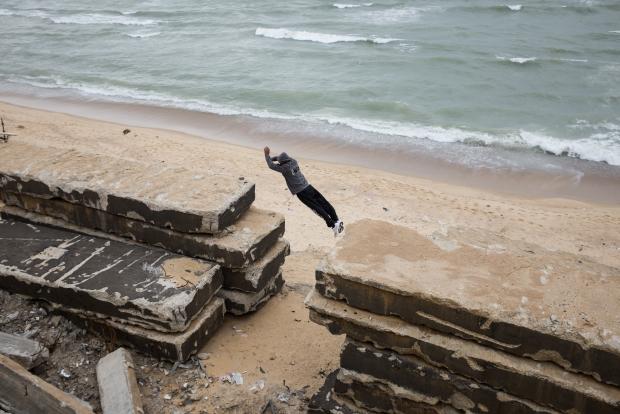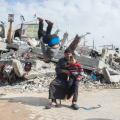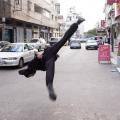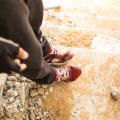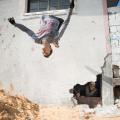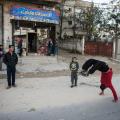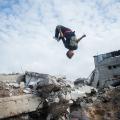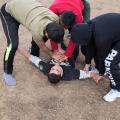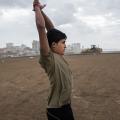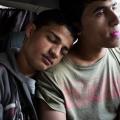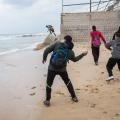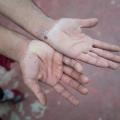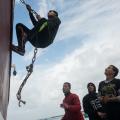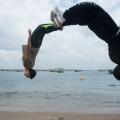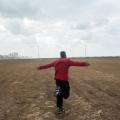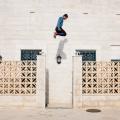‘My brothers Saed en Salah were fifteen and seventeen years old. They were killed during a bombardment in 2008 and 2012’, Hamza says. Ashamed, he wipes tears that have rushed to his eyes. ‘I can’t get the sound of bombs and images of dying friends out of my head. Incessantly, I hear my mother crying over the loss of my brothers.’ No doubt, Hamza takes the biggest risks of the gang. With a smile on his face, he jumps of metre high destroyed houses. He has lost everything so has nothing to lose anymore. Together with his friends, he practises ‘parkour’, a kind of sport in which youngsters run and jump to conquer huge obstacles. They leap from one rooftop to another and do elegant somersaults. ‘Parkour’ is popular in Gaza.‘While practising ‘parkour’, I feel as free as a bird and invincible’, Fahed says. ‘After the war, we set a ‘parkour’ amongst destroyed houses and put videos of it on YouTube. That way, we can show Israeli that they can tear down our houses, kill our children but haven’t crushed our souls yet.’ They should be at the beginning of their lives. Bravely, they study English, photography and sciences within the thick concrete walls that separate them from the world outside Gaza. But also within Gaza, they inevitably run into walls. Unemployment rates rocketed last year; 60 procent of the youngsters doesn’t have a job. Jumping from house to house, they laugh about naked Rihanna on the Net and impersonate the zombies from The Walking Dead. Just like the young generation in our country, they can’t do without their smartphones. The Net is their window on the world. It is their view through the bars of their cage.Hamas, the regime in Gaza, dislikes western influences on youngsters and clearly denounces them. Unmarried girls can’t walk alongside boys in the street and the fashion police sees to it that boys don’t grow long hairdos. Hamas shuts up everyone with a different opinion and doesn’t hesitate to use extreme violence in these cases. In June 2014, Gaza went through a bloody conflict. For Hamza and Fahed, it was the fourth war in their young lives. Like many of their friends, they are marked by traumas. ‘Israel bombed us at night’, Saed says. ‘We couldn’t see the stars because of the lights of the helicopters. Every night, we quietly prayed. Scared, terrified that any moment, a bomb would hit our homes.’‘I was asleep’, Hamza whispers, ‘when a bomb struck our neighbour’s house. The smoke blew through our broken windows. In pyjamas, I ran out of the house and gasped for air. In the morning, I saw how our home had been destroyed. I hope it will be reparable’, he smiles, ‘but my heart has long been broken for ever.’
